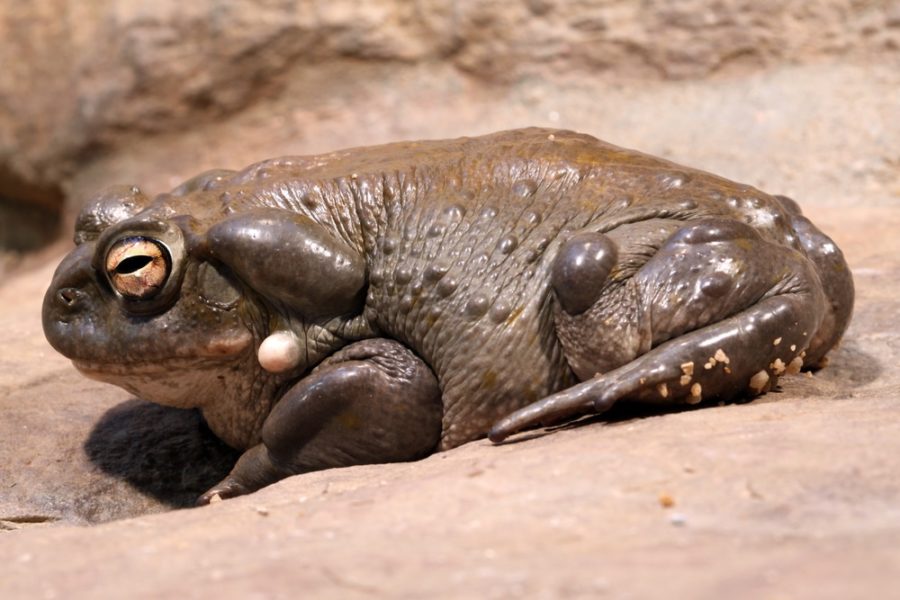
Clinical research on psychedelic toad venom funded for $ 80 million
Oxford-based UK startup Beckley Psytech announced on August 15 that it had raised $ 80 million to support clinical trials and research on a pharmaceutical formulation of 5-MeO-DMT (5-methoxy-N, N -dimethyltryptamine), a powerful compound endogenously produced by the venom of the Sonoran desert toad used to treat depression.
Series B funding was originally set at $ 50 million but was raised to $ 80 million due to “overwhelming interest” from investors to support the clinical development of its psychedelic medicine research pipeline.
The funding round is led by Integrated, and the science-led investor consortium includes Prime Movers Labs, which fund groundbreaking scientific startups; Adage Capital Management LP, a Boston-based institutional investor; Palo Santo; Delphi VC; Leafy tunnel; Negev capital; and the existing investor Bicycle Day Ventures.
Clinical studies of psilocybin, with the guidance of a therapist, show enormous potential for combating treatment-resistant depression. But while a psilocybin experience can last five to eight hours, a 5-MeO-DMT session only lasts an hour, which could radically reduce treatment costs. “Requiring a therapist to sit with a patient for the entire duration of a psilocybin, MDMA, or LSD experience, such as six to eight to ten hours, will be resource-intensive and expensive,” CEO Cosmo Fielding told Mellen Sifted.
From psychedelic toad poison to medical research
The toad’s psychedelic poison is a natural repellent, but with limitless potential in medicine. Vice Media’s Hamilton Morris documented the Sonoran desert toad in detail and called the toad’s secretion the “strongest psychedelic toad poison on earth,” which also makes it ideal for medical research.
As previously reported by the High Times, the Sonoran desert toad – also known as the Colorado River Toad – was discovered to contain DMT-like compounds in 1965. This special genus of toad, Bufo alvarius, is known for high levels of 5-MeO-DMT, which is otherwise very rare in the animal kingdom. Although many other toads in the Bufo family produce bufotenin, the active tryptamine, the Sonoran desert toad has an enzyme that converts bufotenin to 5-MeO-DMT.
The compound is believed to be useful in a number of ways, including for psychedelically assisted therapeutic purposes, and can be synthesized in a laboratory. The company’s CEO agrees. “It was my passion for life to unlock the therapeutic potential of psychedelics because I believe these compounds could help millions of people around the world,” Fielding Mellen said in a press release.
Mellen continued, “The progress Beckley Psytech has made in bringing exceptional talent to the team and advancing our ambitious clinical development programs over the past two years has been tremendously exciting. As we move into our next phase of growth, our strong consortium of seasoned investors will help us deliver much-needed innovative treatments to patients with neurological and psychiatric conditions. “
The Beckley Psytech funding will also accelerate early studies to determine whether psilocybin can be used to treat patients with SUNHA (short-term unilateral neuralgiform headache attacks), a rare and debilitating headache condition.
Beckley Psytech will use the proceeds to complete the ongoing Phase 1b study of low-dose psilocybin in patients with SUNHA, a rare and debilitating headache condition that affects an estimated 45,000 people in the US and Europe. Proceeds will also be used to initiate a Phase 1 dose range study of a novel formulation of intranasal 5-MeO-DMT prior to initiating a Phase 2 study in treatment-resistant depression. The funding will also help expand the company’s pipeline with new, unique, and proprietary psychedelic compounds.
“Cosmo and his dedicated team at Beckley Psytech have created an exceptional research and development platform,” said Jay Newmark, general partner of Integrated. “Their highly differentiated approach, which not only treats major indications such as depression but also rare indications such as SUNHA, enables accelerated market access. We really appreciate our value orientation with this team and look forward to their progress in improving access to these medicines. “

Post a comment: